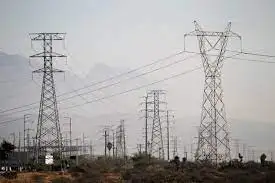COMMISSION PROPOSES TO RESHAPE CALIFORNIA'S SERIOUSLY FLAWED' ELECTRICITY MARKETS WITH SWEEPING CHANGES
- The wholesale electric market structure in California is "seriously flawed," the Federal Energy Regulatory Commission said today in proposing a series of sweeping changes to reshape the state's markets and help remedy the electricity pricing problems that have plagued California this year. The Commission cautioned, however, that unless the state of California also addresses inadequate siting of generation and transmission, and development of demand side response, consumers will continue to pay higher pricesdue to inadequate generation supply.
In a special meeting, the Commission proposed several measures designed to restructure the California electricity market to dampen extreme price volatility, provide a stable environment for generation investment, and ensure just and reasonable wholesale rates.
The Commission proposals include a major overhaul of the California Independent System Operator (ISO) and Power Exchange (PX) market rules in order to provide more flexibility for market participants to manage their risks and broaden their opportunities to buy and sell power.
Chairman James J. Hoecker said: "Never has this Commission had to address such a dramatic market meltdown as occurred in California's electricity market this summer. Never have residential electricity customers been as exposed to economic risk and financial hardship as they were in San Diego. Incumbent utilities have also accumulated dramatic cost underrecoveries in this short time frame. It is important that this Commission act.
"This order is the beginning, not the end, of the Commission's consideration of California's problem. While I might have hoped that the law permitted the Commission to do more, I am nevertheless persuaded that the Commission has responded firmly and fairly. We have pulled no punches. We do not offer short-term or band-aid solutions.
The Commission's order goes instead to the very heart of why California's wholesale markets produced volatile and unpredictably high prices. We ask for the state's support and cooperation in getting wholesale markets in the West back on the rails. Much work needs to be done. Californians are pioneers in this area. And we believe California consumers stand to benefit from open and competitive markets and the capital investment they will attract. I hope we all take the right lessons away from these unfortunate circumstances and continue making wholesale markets work."
The single most important remedy that the California market needs, the Commission said, is the elimination of rules that prevent market participants from managing risk. Under the California rules, the investor-owned utilities were bidding up to 80 percent of their load into the day-ahead and hour-ahead spot markets, creating substantial short-term cost exposure; they were unable to pursue a balanced portfolio, including long-term and intermediate contracts. Moving significant amounts of wholesale transactions into forward markets, the Commission said, will reduce reliance on spot markets, thereby lessening the likelihood of price volatility; improve reliability; and increase the prospect of new generation because revenues will be more stable.
To address these issues and allow better risk management, the Commission proposed that market participants be given the ability to rely more on forward markets.
The remedies proposed by the Commission, most of which are immediate, but some of which will take up to 24 months to effectuate, are: - eliminating the requirement that the three California investor-owned utilities (San Diego Gas and Electric Company, Southern California Edison and Pacific Gas and Electric Company) must sell all of their power into, and buy all of their power needs from, the PX. This will give them more options in securing resources to meet customer needs; - requiring market participants to schedule 95 percent of their transactions in the day-ahead markets in order to reduce chronic underscheduling of load and generation and over reliance on the ISO's real-time imbalance market to meet supply. The Commission proposes a penalty charge for scheduling deviations in excess of five percent of hourly load requirements; - temporary modification of the single price auction so that bids above $150/MWh cannot set the market clearing prices paid to all bidders; - establishing independent non-stakeholder governing boards for the PX and ISO; - the submission of a congestion management design proposal; - the establishment of generation interconnection procedures; - exploration of alternatives to the single price auction by the ISO and PX; and - development of market rules to ensure that sufficient supply is available to meet load and reserve requirements.
The order also stresses that if California policy makers do not resolve the following issues, California consumers are still at risk to pay higher prices: - additions of generation and transmission capacity; and - implementation of demand response programs. - assurance of sufficient reserve requirements; and - allowing Load Serving Entities to pursue power supplies on a more forward basis.
The Commission's central policy is to hold wholesale rates to levels that reflect a competitive market and benefit consumers while encouraging sufficient investment in capacity to guarantee adequate service. To protect wholesale customers from unjust and unreasonable rates during the time it will take to implement longer term remedies involving changes to market institutions and rules, the Commission also proposed price mitigation measures which will remain in effect until December 31, 2002: - single price auctions would be used for all sales in the ISO and PX markets at or below $150 per MWh. The single price would be used for all load which clears below this amount in the auctions. - if an auction does not clear below the $150 per MWh level, suppliers who choose to bid above $150 would be paid their bid price. This mechanism reflects the value of scarce generation capacity in the market, but it does not allow sellers to systematically set the clearing price for the entire market. In other words, the highest bid of the day, if above $150 per MWh, would no longer be the clearing price paid by all. - sellers receiving above $150 per MWh would be required to report their bids to the Commission on a weekly basis and provide certain cost information to the Commission. - the ISO and the PX would be required to report monthly information on such bids. This information will permit the Commission to monitor competitive conditions and ensure just and reasonable rates. Sellers would be subject to potential refund liability, but no lower than their marginal or opportunity costs, if the commission finds non-competitive conditions. The potential refund liability would extend the full 24 months it takes to effectuate the market reforms.
A well functioning competitive wholesale market in California, which includes a well-functioning regional transmission organization, is a fundamental part of the solution to the supply problems and price volatility in California, the Commission said. The interstate, wholesale nature of electric markets in California and adjoining states makes it incumbent that the Commission take whatever steps are necessary to make wholesale markets in the region work for the benefit of consumers.
The Commission noted that its regional transmission organization (RTO) initiative -- Order No. 2000 -- a response to fundamental change in the Nation's electricity industry over the last 20 years, would provide for a more efficient regional system, with a single transmission rate and better congestion management. When fully implemented the regional system will provide for the operation and planning that will ensure consumer benefits for California and the citizens of other states. Many of the problems in California can be traced to the balkanization of the Western grid and the absence of a true RTO. The California transmission-owning utilities are anticipated to file on January 15, 2001, to qualify the California ISO as a full-fledged RTO under Order No. 2000.
The ISO governing board has exhibited increasing difficulty in reaching decisions on the complex issues confronting it, the Commission said. Concerned about its independence from market participants, the Commission proposed that the ISO and PX governing boards disband within 90 days and establish independent boards.
The non-profit ISO and PX began operations in California in 1998.The PX is the scheduling coordinator for the state's three large investor-owned utilities as well as other market participants. The ISO operates and controls most of the transmission system in California.
Related News

India’s Kakrapur 3 achieves criticality
DELHI - Unit 3 of India’s Kakrapar nuclear plant in Gujarat achieved criticality on 22 July. It is India’s first indigenously designed 700MWe pressurised heavy water reactor (PHWR) to achieve this milestone.
Prime Minister Narendra Modi congratulated nuclear scientists, saying the reactor is a shining example of the 'Make in India' campaign and a trailblazer for many such future achievements.
India developed its own nuclear power generation technology as it faced sanctions from the international community following its first nuclear weapons test in in 1974. It has not signed the Nuclear Non-Proliferation Treaty. India has developed a three-stage nuclear programme based on…




